
And suddenly there was a dictatorship
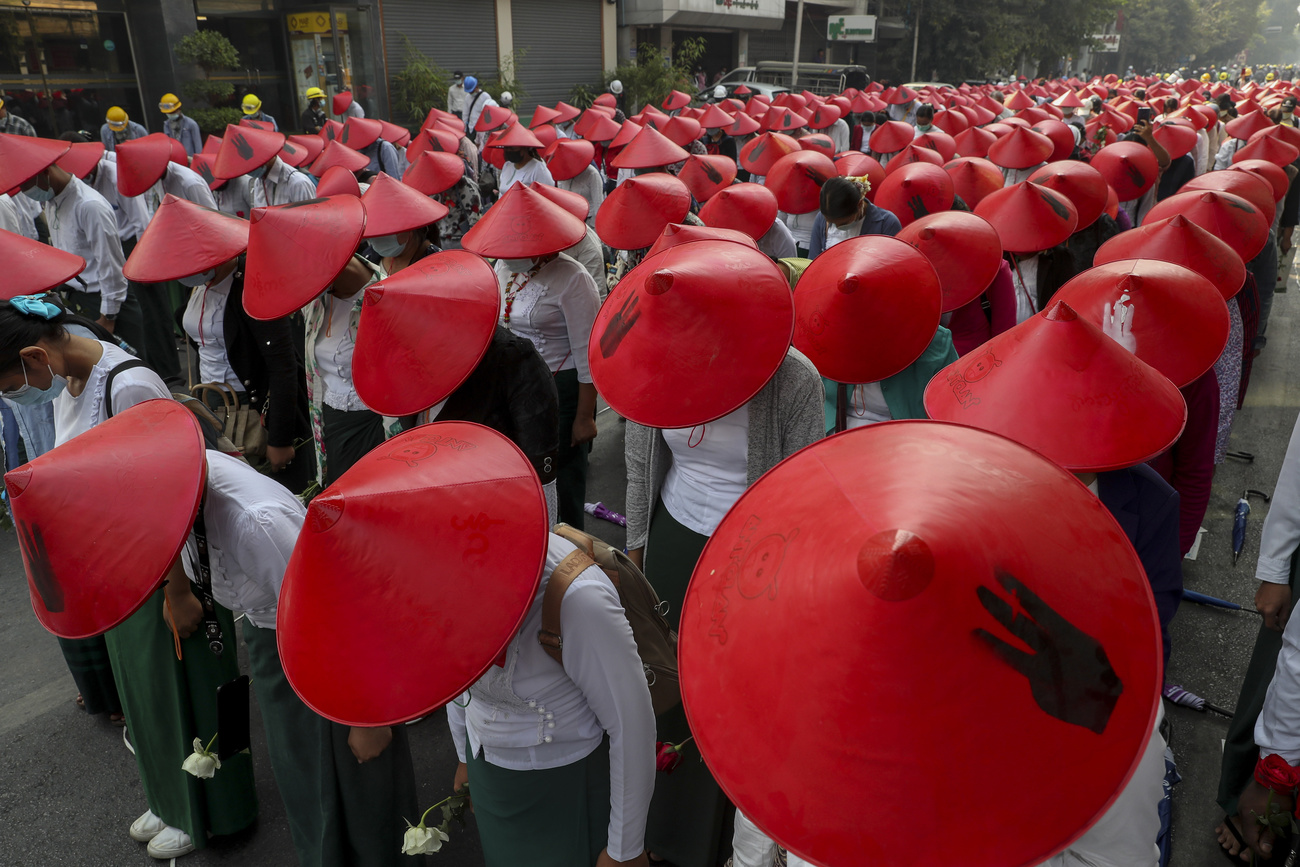
Accompanying a country on its way to democracy was Peter Schmidt’s intention when he and his wife Käthi Hüssy moved to Myanmar in 2017. Little did the development worker know that they would end up living under a military junta.
When he moved to Myanmar with his wife, Peter Schmidt, head of the Myanmar office of the Swiss development organisation Helvetas, expected to find a country on a fairly smooth road to democracy. After a near century-long military dictatorship, the transition to an elected government seemed to be on track. Civil society had been established, the country had opened for investment and tourism, and Myanmar was no longer considered a pariah state.
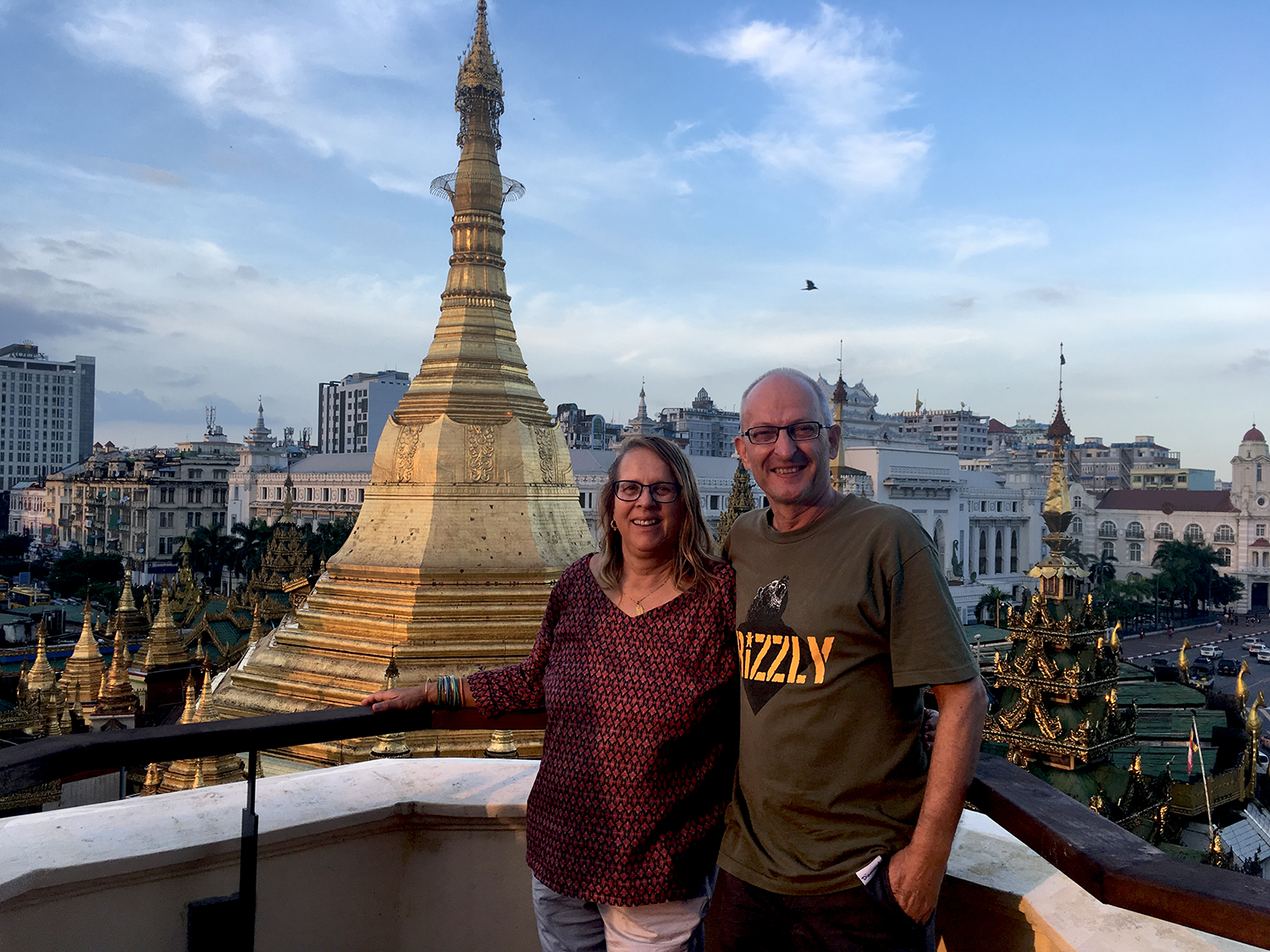
This changed on 1 February 2021, when a coup brought back full military rule under which all protests have been forcefully suppressed since. Rumours of a looming coup had been circulating for a long time. “I never thought they would go ahead with it, but I was obviously wrong,” says Schmidt.
Peter Schmidt is always on the go. As a development worker, he meets with farmers, entrepreneurs, officials, migrant workers, however, last year he hardly left the house. At first, Covid-19-related restrictions kept him indoors. Now he is not leaving the house for security reasons. He spends his time working online and keeping up with what is happening in the country. “I get most of my information from Facebook which is more or less equal to the internet here.” Schmidt is one of the few Swiss nationals in Myanmar and gets many requests to be interviewed by Swiss media.
A life destined for travel
Schmidt grew up in a middle-class family in Zumikon near Zurich where he spent a lot of time outdoors with his father, a passionate hunter. From an early age, Schmidt was fascinated by nature and knew that he wanted to study something “green”. After a short stint in journalism at the end of the 70s, he studied agronomy at the Swiss Federal Institute of Technology in Zurich.
His studies required doing several internships on Swiss farms, something he “utterly enjoyed”, as well as gaining work experience abroad which took him to India in 1986. “This was a very formative experience, a real culture shock!” One of the first images that made an impression on him were Indian women squatting at the roadside and diligently crushing rocks with a hammer. “Unbelievable!” he thought.
Schmidt spent his first three days in India cooped up at home as he could barely cope with this new unknown world. The smells, the noises, the crowds posed a challenge for him. A few years later in the early 1990s, his first overseas job took him to Odisha, formerly known as Orissa, which is one of the poorest regions in India.
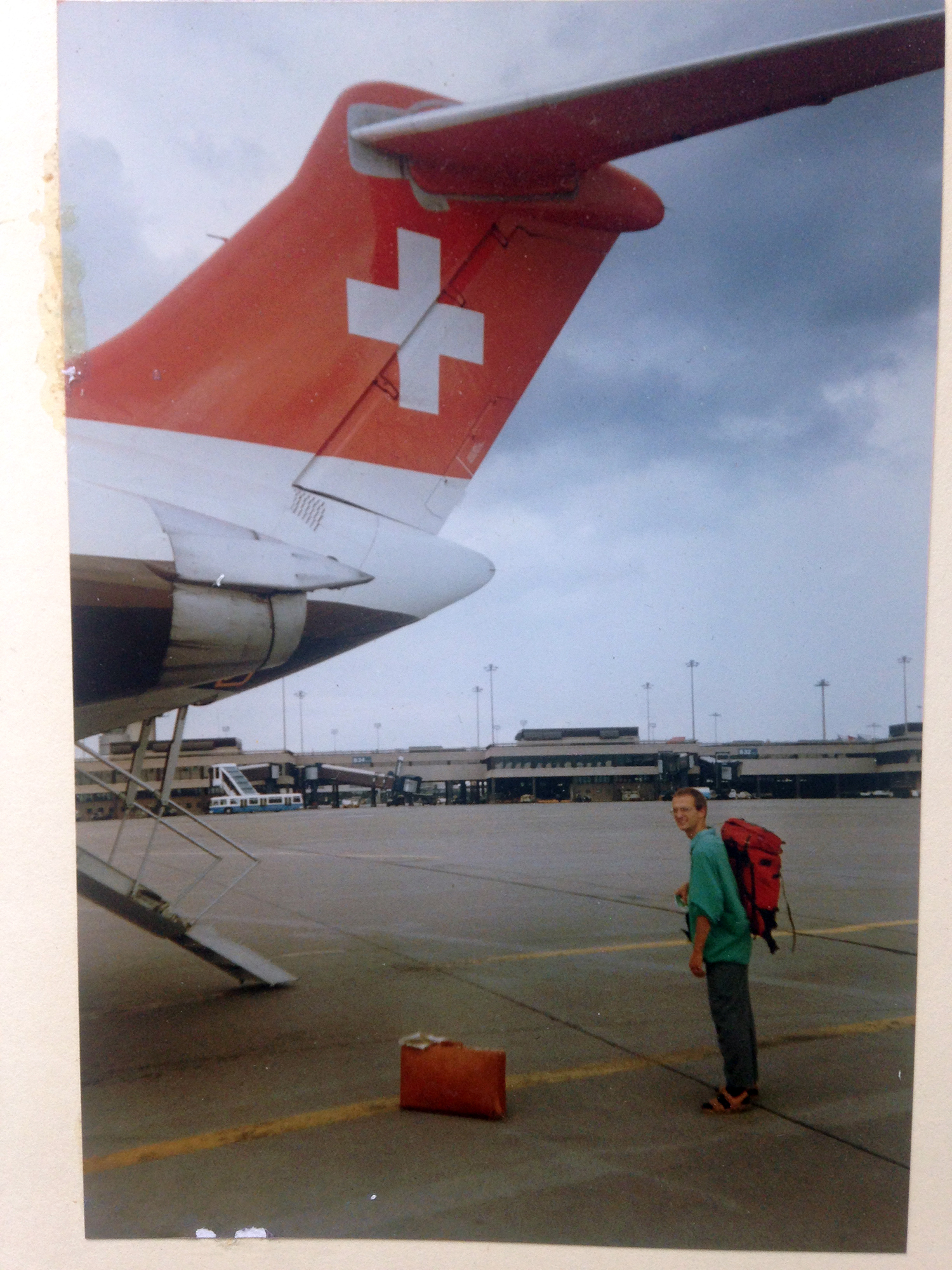
Moving there with his wife and their newborn daughter Zarah was a challenge. The had to get used to the climate, the basic living standards, and the fact that they had little or no contact with the locals who hardly socialised with anyone outside their extended families. “Käthi nailed it on the head when she called it ‘social death’.” Professionally the move was certainly an enriching experience. Schmidt managed projects in livestock farming, provided agricultural advice and established a support mechanism for ethnic minorities.
Going abroad again
After the mission in India, the family returned to Switzerland where Schmidt worked in the development sector which regularly took him abroad. After their son Niclo was born in 1998, the family moved to Kyrgyzstan where Schmidt was able to set up an agricultural advisory service. He worked in a very dynamic environment as the central Asian state was still recovering from the collapse of the Soviet Union. The living standard was also good. “We probably had the best time of our family’s life when we lived in Bishkek.”
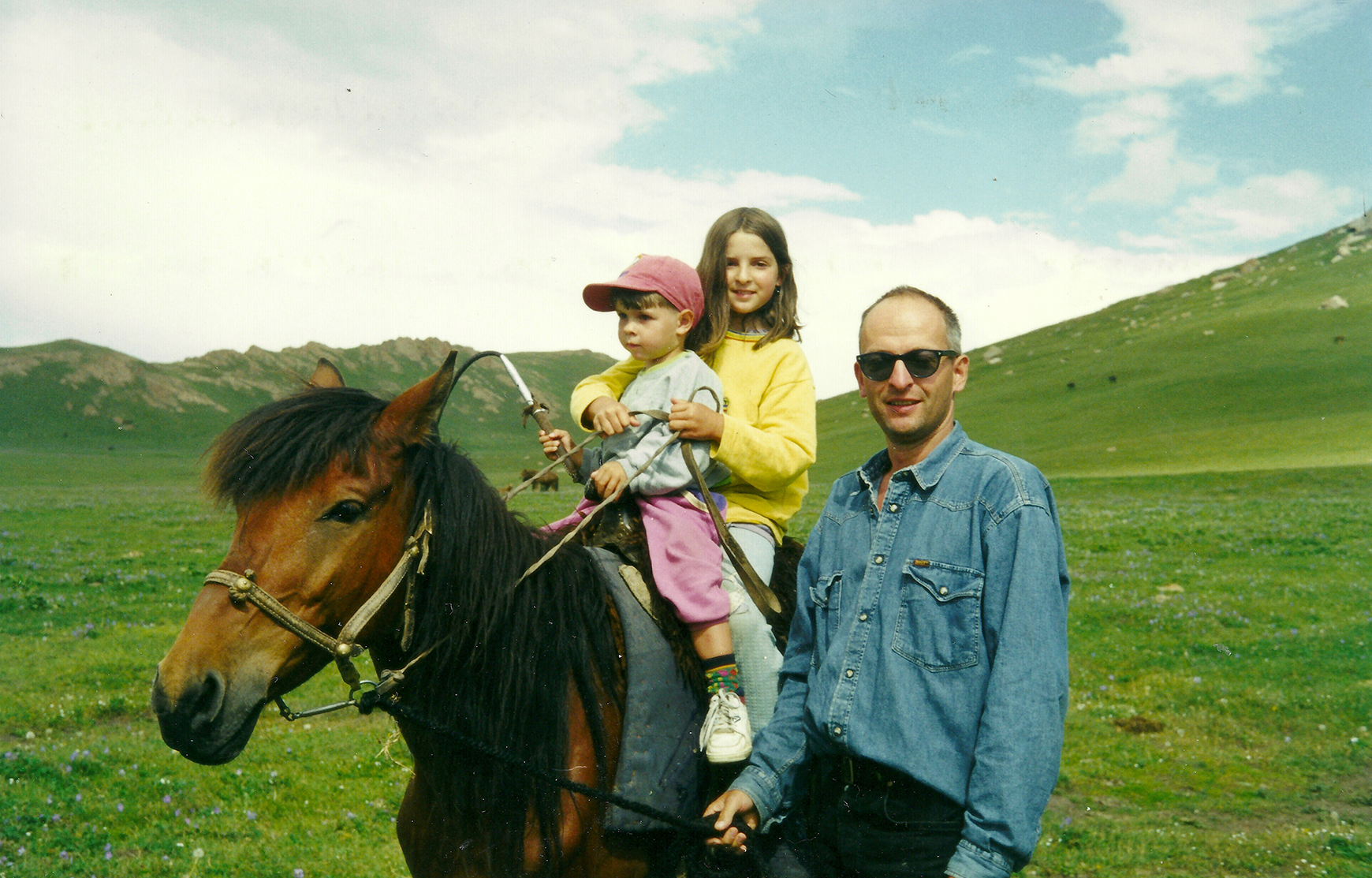
There were two sides to their life in Kyrgyzstan. On one hand, the family spent their holidays with Nomads in the mountains and lived in yurts for many weeks, an experience Schmidt recalls as ‘very archaic’. On the other, the advent of the Internet changed Schmidt’s work significantly and made keeping in touch with those back home much easier. Socialising with the locals and the international expat community also contributed to the family’s quality of life in Bishkek. After a few years in the Kyrgyz capital, the family returned to Switzerland where Schmidt worked at Helvetas’ headquarters in various capacities.
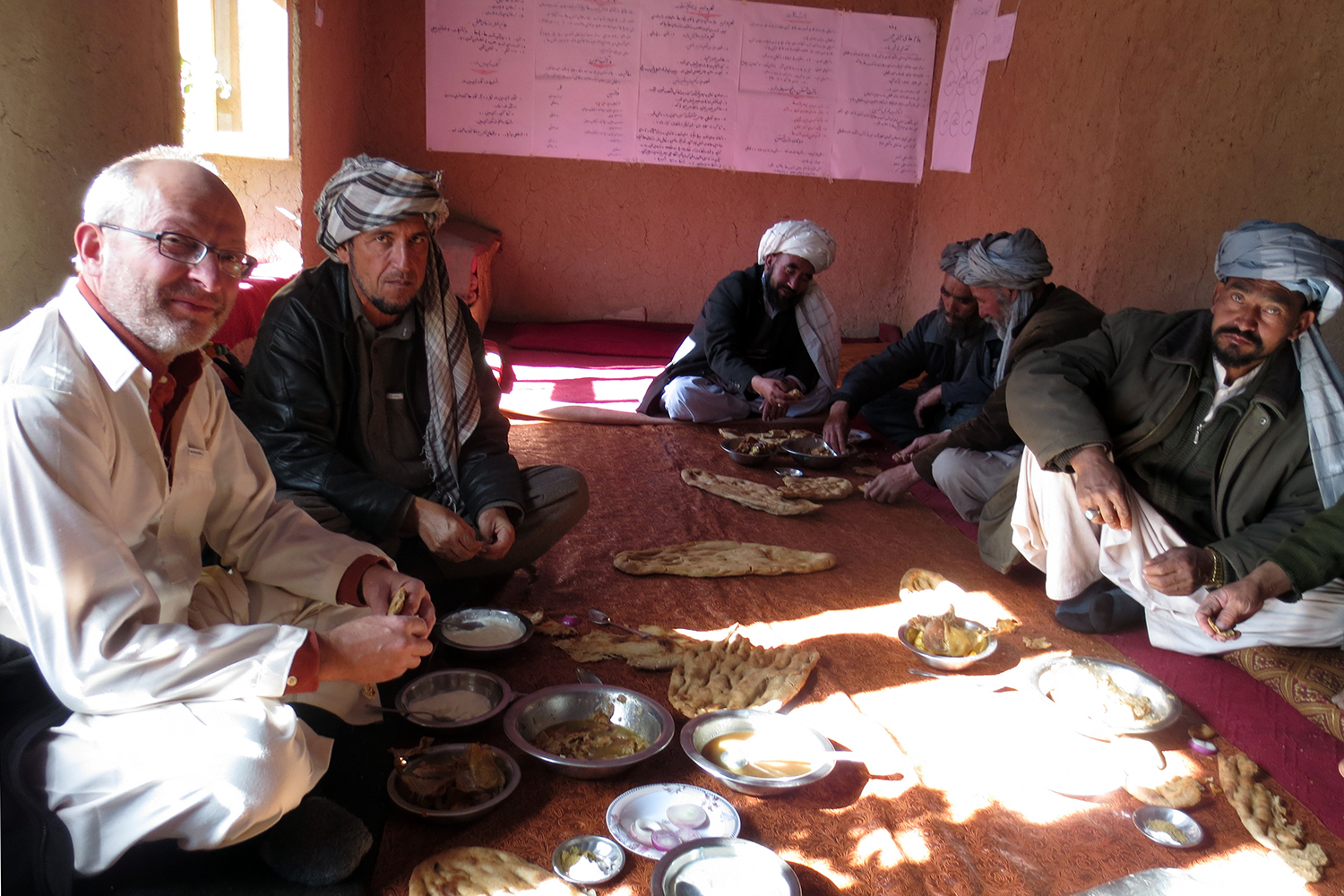
Setting off to Myanmar
When the children had completed their education and were financially independent, the couple decided to go abroad again, supposedly the last post in a long career. “We were looking forward to going to Myanmar, a culturally rich country with an interesting history.“ Schmidt is in charge of the entire Helvetas programme and manages a team of 50 people as well as an annual budget of CHF6 million ($6.7 million). A fascinating job considering the organisation only began its involvement in Myanmar in 2012.
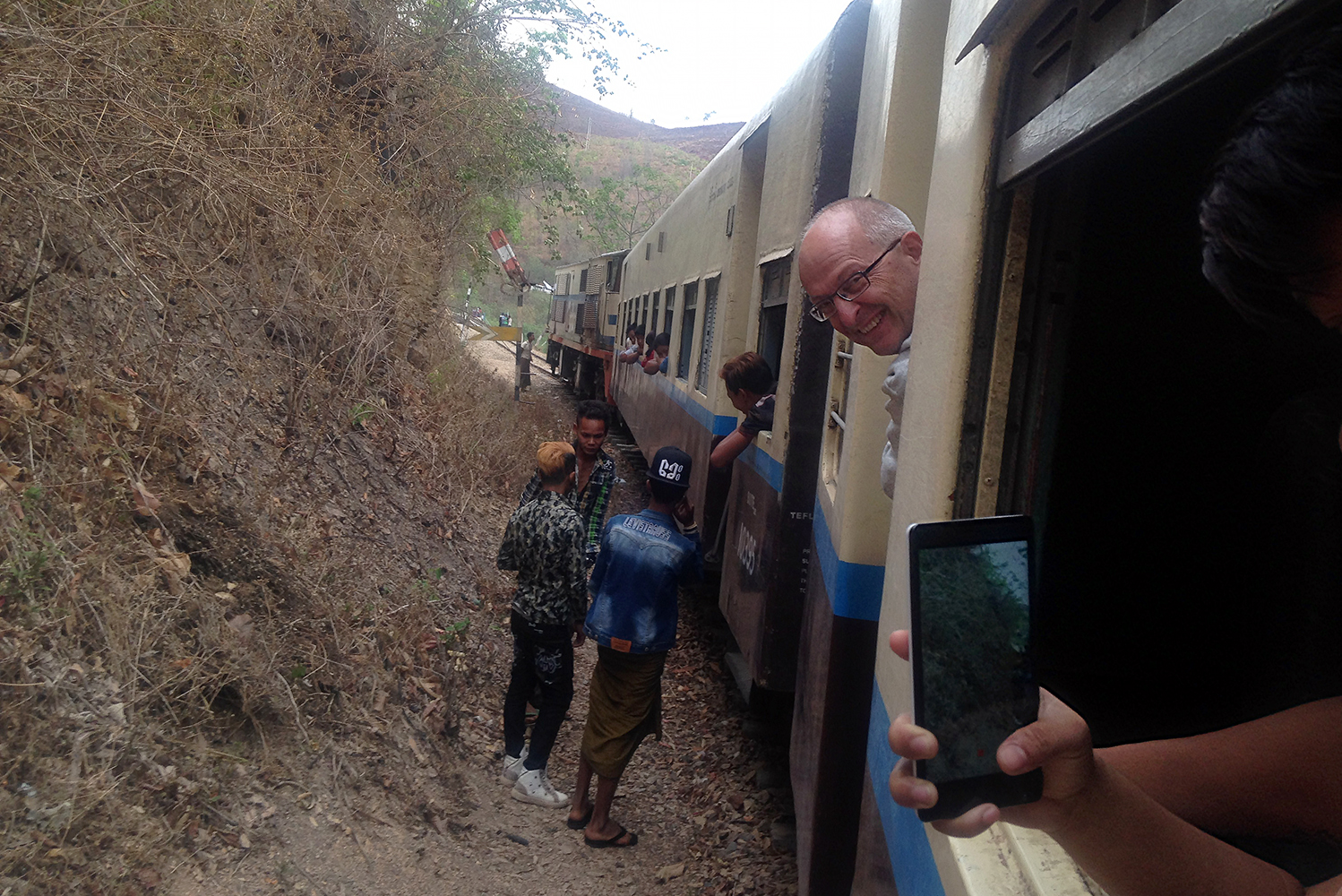
Even though Myanmar was on the road to democracy when the couple moved there, the country was not at peace. There are more than 50 recognised ethnic minorities, some of which have their own militia and have been fighting against the army, which makes the situation volatile, especially in rural areas. The international community became aware of what was happening in the country when 700,000 Muslim Rohingyas were persecuted and forced to flee to neighbouring Bangladesh in the summer of 2017. “The military showed its true face then.”
The military is still very dominant in the country and has a grip on the economy through conglomerates and monopolies. “With every beer I’ve drunk here, I helped fund the military junta.“ The protest movement as a reaction to the coup has set out to bring the regime to its knees.
The military has fought back with a vengeance, and so far, more than 700 people have lost their lives, some have been sentenced to death and the media reports that more than 300,000 have been displaced, however, the real number is probably much higher. Police and soldiers arrest people in their homes during the night when the government switches off the internet and information cannot be spread on social media. The sudden coup also came as a surprise to Schmidt. He woke to a text from his son in Switzerland informing him that the army had seized power.
Confirmed: Mobile data has been cut in #MyanmarExternal link for 50 days and online platforms remain heavily restricted limiting press freedom at a critical moment for the country's future :no_mobile_phones:#WorldPressFreedomDayExternal link#WhatsHappeningInMyanmarExternal link
— NetBlocks (@netblocks) May 3, 2021External link
:newspaper:https://t.co/Jgc20OBk27External link pic.twitter.com/3VIrbtJYkdExternal link
What happens next? Schmidt and his wife are moving back to Switzerland when his assignment ends in June 2021. “To be honest with you, we are actually looking forward to going back,” Schmidt says. The last few months were tough, even though as expats the couple was not in danger. His colleagues, however, live in constant fear of getting arrested or of their country sliding into the abyss. Schmidt wonders about the future of his local colleagues, especially the young ones and those with families. “It is sad to leave the country behind in such a state.”
The UN special envoy for Myanmar, Christine Schraner Burgener, speaks to SWI swissinfo.ch about her role in the conflict:

More
‘As long as people are protesting in the street, the coup isn’t over’

In compliance with the JTI standards
More: SWI swissinfo.ch certified by the Journalism Trust Initiative


















![The four-metre-long painting "Sonntag der Bergbauern" [Sunday of the Mountain Farmers, 1923-24/26] had to be removed by a crane from the German Chancellery in Berlin for the exhibition in Bern.](https://www.swissinfo.ch/content/wp-content/uploads/sites/13/2025/12/01_Pressebild_KirchnerxKirchner.jpg?ver=1ea8acae)











Join the conversation!